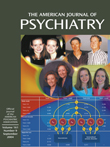The jacket blurb suggests that this book will be of value to “students, practitioners, and researchers in the fields of psychology, psychiatry, medicine, nursing, social work, and public health.” It is not clear, however, that this book will fit any important niche for most mental health professionals.
Dr. Everly appears to have a strong public health background and has developed a critical incident stress-management system designed and widely promoted for use by emergency workers. Given that Dr. Everly cites his previous work with the eminent Dr. Theodore Millon in the chapter titled “Personologic Diathesis and Human Stress,” we might expect useful and sophisticated thinking regarding the understanding and treatment of stress-related psychological disorders such as posttraumatic stress disorder (PTSD) and their occurrence in the context of preexisting structures having to do with identity, interpersonal affiliations, and values. Unfortunately, this is not the case. The chapter on psychotherapy, for example, is a very brief primer on a few types of cognitive therapy that will not appreciably deepen the understanding of cognitive approaches except for beginning students. There is a similar lack of depth in the chapter on PTSD, despite the fact that two full pages are given over to arguing for the putative efficacy of eye movement desensitization and reprocessing.
In contrast to the lack of useful information about psychotherapeutic treatment of stress-related psychopathology, there are detailed chapters on breathing relaxation techniques as well as chapters on meditation, diet and exercise, and religion and spirituality. Appendixes include a 14-question “checklist” (without any cited research support) to determine how well an individual “copes with stress” as well as two appendixes listing different herbal supplements. Much of the book reviews ways that stress is thought to affect “target organs” as envisioned in the work of Dr. Hans Selye.
In our opinion, this book leaves important waterways and depths uncharted. There is a heavy focus on biological mechanisms and a scanty approach to conscious and unconscious psychological processing of the meaning of serious life events. The authors do a good job summarizing some new findings (since the first edition), and these sections focus on brain microanatomy, optimism, spirituality, and complementary or alternative medicine.
Weak as it is in dealing with such issues as how to facilitate adaptive mourning processes or conduct psychotherapy through the obstacles of defensive control processes, this book is an excellent resource for the multitude of workers in the teeming stress-management field. We think that business health officers and directors of personnel well-being programs, primary care physicians, and nurse practitioners would benefit from the chapter reviewing gastrointestinal, cardiovascular, respiratory, musculoskeletal, and skin disorders that may be stress related, as well as the section on immune mechanisms.
This volume does not totally ignore the psychiatric literature, but it certainly does not deal with it adequately. The chapter on pharmacological treatment of the stress response is written by two pharmacists. To our reading, this is a compendium of what the drug companies say rather than an adequate review of how psychiatrists should use pharmacotherapy. The relatively long index does not include any reference to intrusions, intrusive thinking, unbidden images, nightmares, avoidances, denial, psychological defenses, grief, or mourning. There is one entry on bereavement, but that is only in terms of its effect on immune functioning, not the fact that loss and mourning responses are common to many kinds of stress. The index does include references to animal magnetism, coffee, esophagitis, Hinduism, Kung Fu, and lavender (the antianxiety activity of).
It may be relevant that Dr. Everly has suggested desensitization techniques to reduce the hypersensitivity of some people after trauma, coupled with techniques that address the cognitive schemata that have been threatened or destroyed by the traumatic event. As he correctly states in the book, he agrees with one of us
(1,
2) on these principles. The techniques for desensitization that he suggests include meditation, yoga, physical exercise, massage, neuromuscular relaxation, hypnosis, psychotropic drugs, guided imagery, and so forth. The book is full of useful summaries of research on these particular topics. The emphasis, however, is much more on the physical and not enough on mental processing. That is the reason we do not view this as a useful book for the training of the beginning clinician, whether psychologist or psychiatrist.

